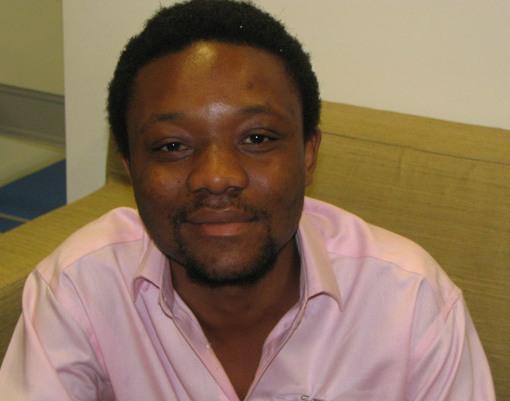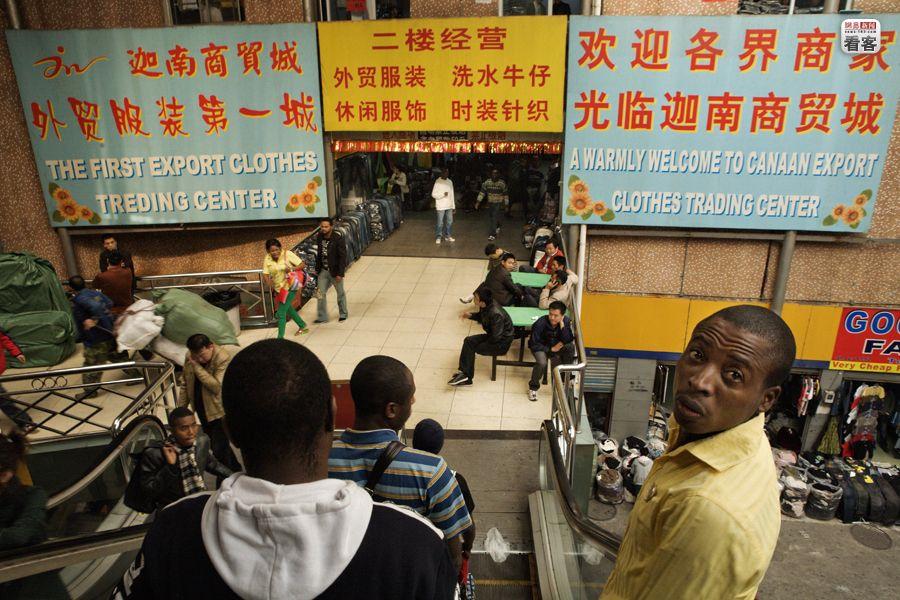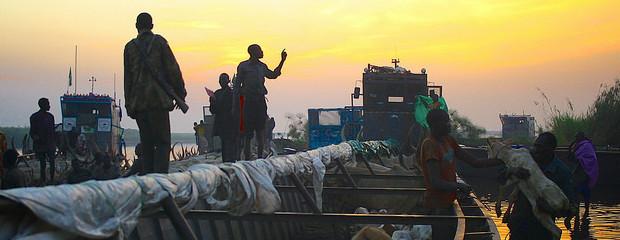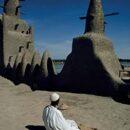What’s Diaspora got to do with it? – By Dele Fatunla


Members of the African diaspora in China, fast becoming the most important country for African economic growth
It’s fast becoming commonplace to say Africa is experiencing a renaissance. Many of its countries, once bywords for hopeless basket cases, have made a sharp turn away from skid row onto Prosperity Avenue, their booming economies, growing populations and returning diasporans celebrated. But should the last be a cause for celebration? For a long while, Africa’s diaspora have been a trump card afro-optimists have wielded against the pessimists despairing about the future of the continent. Rather than a symptom of a “˜brain drain’, they saw in this large pool of skilled professionals the brightest and best of Africa, who fled the detritus of the failed states of the 70s, 80s, and 90s, and became the vanguard that would transform said basket cases into shining examples of functioning market democracies. So it’s somewhat contrary popular perception to find that the current stability and prosperity in Africa’s nations has had little to with the diaspora. China’s rise as an alternative market for commodities (the bread and butter of most African economies), the exhaustion of warlords and liberation movements at the end of the cold war, and the telecommunications revolution that has broken the stranglehold of many rent extracting and corrupt elites – these are the more immediate causes of the transformation of Africa’s fortunes. So why the faith in a group of people who by and large fled the continent when it was most in need, and returned when it least needs them? Where exactly has the diaspora shown itself to be a glorious knight in shining armor? Are we investing a little too much in this myth about ourselves and too little in the future – most crucially, in the skills and capacity of Africans on the ground?
Recently there seems to be an exodus of Africans abroad ready to go home. Is this however a trend that we should be encouraging? Is the Diaspora really the continent’s saving grace, or is it actually the most fickle group of the African population, ready to move back when the going gets good and just as ready to leave when it gets tough again? Is there anything fundamentally different about Africa today that will make diasporans more committed to a continent and countries they voted with their feet to leave?
Of course, there are those who say that Africans who left in the 70s, 80s and 90s had no choice really – fleeing was the only way they could make use of their education, and crucially, it is their remittances that have supported numerous families and businesses while the state failed. In the case of Africa’s older diaspora – those captured or fleeing due to war and enslavement – the lack of choice in migration was literal.
Nevertheless, the trend towards increased prosperity and global re-engagement with the continent has made the Diaspora crucial to debates about its future. It is true that the remittances sent from various countries across the world continue to dwarf the aid contributions, and in some places, foreign direct investment to African countries. In Europe and the United States in particular, people of African descent are increasingly well-educated and highly qualified in a variety of skilled sectors. Yet is it really true that the Diaspora will provide that alternative base of skills that African companies and countries need?
A recent article about a Diasporan Nigerian minister in the Nigerian newspaper NEXT unleashed a spectacular attack on the former director of a multilateral institution, claiming she was a mediocrity in her former role and the status of being from the diaspora elevated her to a position she had not earned in the nation’s politics. The merits and demerits of the accusations aside, it’s a given that for many professionals of African descent, frustrated by the glass ceilings in the economies of the west, Africa offers a new table of opportunities. Is the Diaspora just a bunch of mediocre professionals being parachuted into roles they would not stand a chance of securing abroad? And is the common assumption that Diasporans are in some way more rule-bound, ordered or efficient really justified? Is the critical mass of diasporan Africans going “˜home’ to Africa going to be the thing that tips the scales towards making poorly run African states into modern powerhouses?
In recent years, a renewed confidence in African ideas and innovation has been felt in the world, this can be seen, for example, in the emergence of political institutions like The Elders, the pioneering use of mobile phone banking and the development of crowd sourcing technology. Increasingly, the Africans making their mark globally are those born and bred on the continent – Wangari Maathai, Ory Okolloh, Teju Cole, Chimamanda Adichie, Tidjane Thiam and Binyavanga Wainana, to name a few. If the most dynamic ideas and people are coming out of Africa, what really does Diaspora have to with it?
Dele Meiji Fatunla is the editor of Diaspora Debate.






“Recently there seems to be an exodus of Africans abroad ready to go home. Is this however a trend that we should be encouraging?”
As a Londoner and soon-to-be-graduate, I find that there is the perception that African job markets are far less intense for those with degrees from abroad. Having said that, I genuinely feel that my skills would be put to MUCH better use back home. But, as a continent, should we not be making use of a diverse pool of labour and skills rather than fuelling a divide between the diaspora and “Africans on the ground”? This is NOT the way forward. Can we not recognise the efforts of Africans without undermining the potential use of those abroad?
‎”A recent article about a Diasporan Nigerian minister in the Nigerian newspaper NEXT unleashed a spectacular attack on the former director of a multilateral institution, claiming she was a mediocrity in her former role and the status of being from the diaspora elevated her to a position she had not earned in the nation’s politics. “…
“Increasingly, the Africans making their mark globally are those born and bred on the continent – Wangari Maathai, Ory Okolloh, Teju Cole, Chimamanda Adichie, Tidjane Thiam and Binyavanga Wainana, to name a few.”
Dele, your definition of a diasporean is unclear to me. Adichie, Cole and Okonjo-Iweala have similar backgrounds. Even Okolloh. Born and bred in Africa up until FE. I’m lost.
@SM, Fair point, though Okonjo-Iweala is specifically referred to as a diasporan african; the others on the other hand not – it does raise the point though that the diaspora itself is necessarily fluid. As a rough benchmark, I’d think those who have spent a very significant time of their life outside of the continent as Okonjo-Iweala has could legitimately be said to be diasporans.
I am yet to see a proper African Diaspora in the ruling class in Nigeria at least. I guess this article begs the question “who is the African Diasporan”, someone who studied abroad. For me African Diasporan would be Black Americans or Afro Caribbean person, not someone who went to study abroad, they are just foreign trained Africans. A British expat in Lagos is British not Diaspora British, no matter how long he has lived there for. What’s the rumpus?
Some of your questions are loaded and you don’t present much evidence at all to merit them.
“So why the faith in a group of people who by and large fled the continent when it was most in need, and returned when it least needs them?”
Why even ask this question? You note that many of those who fled did so because they were in war and literally had no choice, as an afterthought. And you make it seem as though they could have helped by staying somehow. The fact is, there were wars. That’s what happens in war–some people leave, and hopefully send back money, and some people stay. There isn’t something intrinsically different about those who left from those who stayed, and I think this is divisive rhetoric.
“Are we investing a little too much in this myth about ourselves and too little in the future – most crucially, in the skills and capacity of Africans on the ground?”
Can you please clarify this question. “Who” exactly is investing so much in the diaspora, and how much, and how is it taking away from the investment in “on the ground” Africans? Are we talking about development/aid organizations, or African government initiatives? Are we even talking about money? I was under the impression that most funding goes toward building capacity “on the ground,” as you say. So I’m not sure what this article really is about. It seems like you’re just ranting against the diaspora in a passive aggressive way, honestly. (eg suggesting diaspora is “fickle” , painted as “knight in shining armor”, mediocre and not committed, etc…)
[…] current debate question raised by Dele Fantula is: What’s Diaspora Got To Do With It? The question has attracted reactions from Semhar Araia, Boko Inyundo and Chukwu-Emeka […]
[…] current debate question raised by Dele Fantula is: What’s Diaspora Got To Do With It? The question has attracted reactions from Semhar Araia, Boko Inyundo and Chukwu-Emeka […]